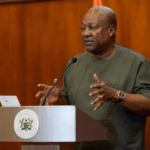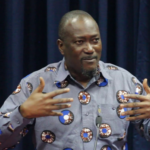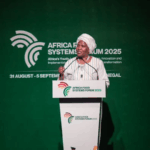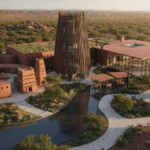
Deputy Ranking Member on Parliament’s Lands and Natural Resources Committee, Akwasi Konadu, has described President John Dramani Mahama’s recent engagement with Civil Society Organisations (CSOs) on illegal mining as a “charade”, accusing the government of avoiding the core issues in the fight against galamsey.
Speaking on Joy FM’s Top Story on Monday, Mr. Konadu said the President’s meeting was a public relations exercise meant to deflect pressure rather than deliver concrete actions to tackle the growing menace of illegal small-scale mining.
“I am glad you acknowledge that galamsey is on the ascendancy, and that the President had cause to call CSOs into a meeting. I call that a charade. The President wants to dodge the fundamentals of the fight against illegal mining and create the impression that something is being done by simply meeting CSOs,” Mr. Konadu asserted.
Mr. Konadu argued that nothing new or substantive emerged from the President’s comments at the meeting, insisting that the government has failed to demonstrate a clear, actionable strategy to curb illegal mining activities that continue to devastate Ghana’s environment.
“Let us go back to what he said on Friday and compare. Do you see anything new—something fundamental and specific to the fight against illegal mining? Nothing at all,” he said.
The lawmaker also dismissed the President’s proposal to declare some areas as security zones, calling it a recycled idea that has failed in the past.
“We were told some years back that nine forest reserves were in the hands of armed groups and had been reclaimed by the state. Now, according to government communicators, 44 forest reserves are under threat, and yet no state of emergency has been declared. What does that tell you?” he questioned.
Mr. Konadu said the government’s inability to act decisively proves that the galamsey crisis is worsening under its watch, despite repeated promises to clamp down on the practice.
He urged the administration to move beyond “rhetoric and meetings” and instead implement a comprehensive and transparent enforcement mechanism involving local communities, security agencies, and traditional authorities.




